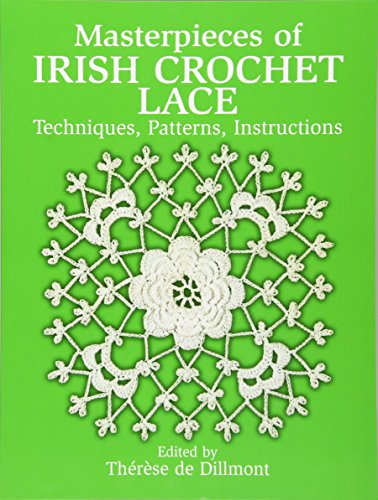

Most ebook files are in PDF format, so you can easily read them using various software such as Foxit Reader or directly on the Google Chrome browser.
Some ebook files are released by publishers in other formats such as .awz, .mobi, .epub, .fb2, etc. You may need to install specific software to read these formats on mobile/PC, such as Calibre.
Please read the tutorial at this link: https://ebookbell.com/faq
We offer FREE conversion to the popular formats you request; however, this may take some time. Therefore, right after payment, please email us, and we will try to provide the service as quickly as possible.
For some exceptional file formats or broken links (if any), please refrain from opening any disputes. Instead, email us first, and we will try to assist within a maximum of 6 hours.
EbookBell Team

4.8
44 reviewsIn recent years Irish crochet lace has enjoyed a tremendous revival among needleworkers. Nearly lost in the early twentieth century when machines took over the manufacture of most lace, the craft is now being rediscovered by enthusiasts who recognize it not only as one of the most durable, serviceable, and beautiful forms of lace but also as a type that provides a unique opportunity to be creative.
This inexpensive volume presents authentic motifs and grounds used by the most skilled Irish needleworkers of the late nineteenth century. Collected and edited by one of the best-known experts of the time, Thérèse de Dillmont, it offers patterns, complete instructions, and/or detailed photographs for 30 motifs, 12 intricate grounds, and various traditional footings and borders.
Crocheters can use these versatile motifs of delicate raised flowers, leaves, sprays, and more to transform ordinary bedspreads, doilies, tablecloths, and clothing into works of art to be treasured for years. Make your own unique designs for new curtains, fancy collars, delicate cuffs, and so much more. Each of these motifs can be altered in shape, enlarged, diminished, or combined in new patterns — there's virtually no limit to the results you can produce.
Beginners should practice making individual motifs before attempting an entire piece of lace, and experienced crocheters may want to follow the directions exactly before experimenting to form new motifs. With practice, you can invent your own patterns just by employing these authentic, elemental motifs and their complementary grounds. A new introduction relates the history and technique involved in Irish crochet lace, and a conversion chart translates outdated terms.